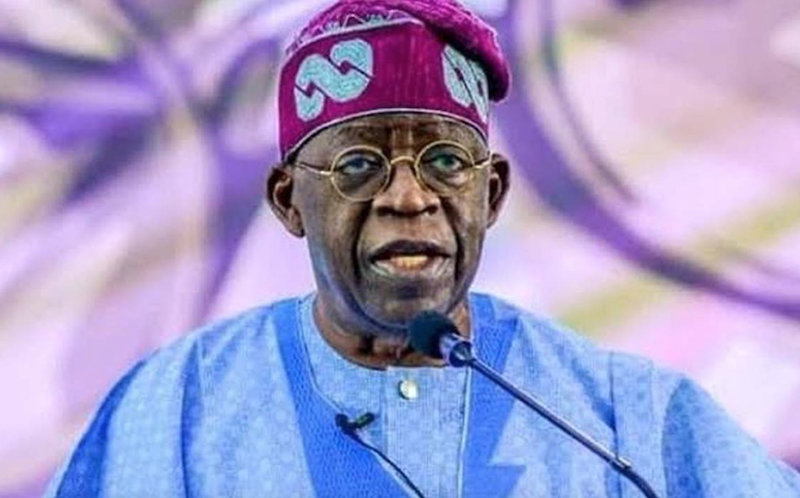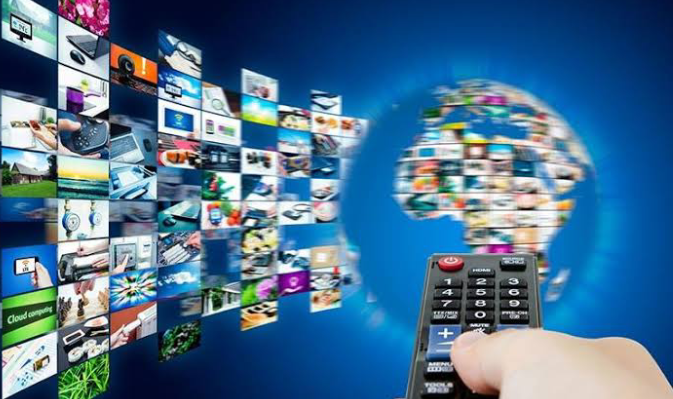The news last week that the Federal Government is seemingly finalising plans to put the Digital Switchover (DSO) on an accelerator that can immediately take it to about 10 million people, was very elevating and, for me, it marks a good turn for the Tinubu administration.
The story which has been in gestation but only broke last week, is the fruit of a relationship between the National Broadcasting Commission (NBC) and NigComSat which have both agreed to deploy their available capacity and resources to resolve the DSO impasse.
The NBC which is the nation’s broadcast regulator is the arrowhead of DSO implementation in Nigeria (migration from analogue to digital television broadcasting), while NigComSat is charged with providing satellite capacity for the nation and beyond, and has a satellite, NigComSat – 1R in the geostationary orbit. However, the story of DSO in Nigeria has not been very inspiring, resulting in the nation missing the ITU implementation targets twice. Before this development, the process was in hibernation, giving the impression that Nigeria cannot even implement a simple process. Simple?
Details of information released May 29, 2025, by both organisations are very uplifting and can stir any soul. Titled, NBC and NigComSat Unveil Nigeria’s Satellite-Driven Digital Switchover: “The Big Picture,” it says, “In a bold move to redefine Nigeria’s digital future, the National Broadcasting Commission (NBC) and Nigerian Communications Satellite Ltd (NigComSat) have launched The Big Picture – a revolutionary upgrade to the country’s Digital Switchover (DSO) strategy.”
Highlights of The Big Picture include: Satellite Over Terrestrial – no towers, NigComSat 1R to beam Direct-to-Home signals across Nigeria instantly; Immediate Access – Over 10 million Nigerian households with satellite-ready TVs or DVB-S2 set-top boxes can access 100+ Free-to-Air television channels; Hybrid Smart Boxes, which combine satellite channels with streaming apps; and Content for All – 40 percent of all channels slots are reserved for independent and regional producers.
The proposition fascinates to no end. It means that a nation whose entertainment sector is booming across the world, will have more of her contents on digital TV, it means more job for Nollywood and and an auspicious opportunity to saloon its abundant talents, it means ordinary folks can have access to digital contents, and it also means more channels for Nigerian to ventilate their spleen on the state of the nation sans freedom of speech.
But every story has a flipside and this is needed for the understanding of the unfolding picture in the broadcast industry. The broadcast channels in the country are run on frequencies allocated to broadcast operators by the NBC. It was so in other parts of the world, although the story has gradually changed as a majority have completed their switchover.
It is often said that frequencies are a scarce resource which are managed from the global platform of the ITU. Since both TV and Telecommunications can use the same frequencies, and frequencies are a scarce resource, mind you, the thinking of the ITU in 2006, was for broadcast channels to move operations to digital platforms that could accommodate as many channels as imagination can guess. The movement will free up their frequencies for telecom operations; this will impact on broadband service deployment and cost of service acquisition.
While about nine countries in Africa, including Mauritius, Kenya, Tanzania and Uganda have completed the switchover, the process in Nigeria has been so convoluted and too woollen to pass a transparency test. That was until last week or is it?
An industry source told this writer that the satellite option is very attractive and should be encouraged. Afterall, Morocco did it by taking about 90 percent of their switchover through satellite while the remaining 10 percent was terrestrial, perhaps because of their terrain. The source suggested that Nigeria can also adopt the hybrid approach of terrestrial deployment in the core cities while using satellite in remote areas, more because of pervasive insecurity than mountainous terrains. The satellite option may escalate the process of harvesting the digital dividends.
But another source which is more in the hardware area in the switchover ecosystem, pointed out that the protocol of the switchover is based on Digital Terrestrial Television (DTT) and not Direct-to-Home (DTH) which has existed in Nigeria since the coming of M-Net, and then Multichoice before being joined by Startimes. DTT relies on towers/masts unlike DTH which is space inclined.
The source observed that the proposition which looks beautiful doesn’t seem to accommodate previous history of the process and the stakeholders involved in it.
Let’s interrupt the above thought. For the DSO to take off in Nigeria, the NBC licensed ITS and Pinnacle as signal carriers for broadcasters, while a number of companies were also licensed to manufacture set-top boxes (STBs) that will convert digital signals for the use of anologue television. The STB prevents analogue TV sets from being junked!
Investors were encouraged to come into the industry. While Pinnacle, for instance, paid over N600m for a carrier license (don’t ask me how much ITS, which is linked to NTA paid, just like NITEL and GSM license – they always don’t pay), the STB manufacturers shelled out N50m each to become pioneer players in the switchover process.
Quite some money have gone into the process. The Nigerian government in demonstration of good faith may have put in about N50bn while the other payers – Pinnacle, ITS and the STB manufacturers may have invested another N20bn in equipment or platform installations and manufacturing, according to industry sources. There are hundreds of thousands of STBs in warehouses across the country. The other day, a voice called this writer from up north to complain that his investment in the distribution of STBs has ruined his life! The past cannot just be interred and papered over with the fantasy of beautiful ideas.
Back to the story, there are complaints from different stakeholders in the ecosystem that they have hardly had any interaction with thier regulator or even the other party involved in The Big Picture.
There are always stakeholders in an ecosystem. I will want to observe that the stakeholders in the DSO process are: the government, regulator, industry – broadcasters, signal carriers, STB manufacturers, and the viewers which have been aptly identified in The Big Picture as households, with 10 million projected in the first instance. There is an addition – NigComSat! To be frank, the households are powerless in the process until the big boys have sorted out themselves.
I will want to suggest here that the regulator should play more with the stakeholders because a regulator without stakeholders is like a general without troops or a king without chiefs or people. The stakeholders must be embedded in the dreams of the regulator.
A former regulator (there are so many of them because there was churn in that area) suggested that to avoid a disconnect and unnecessary acrimonies in the DSO process, the regulator may need to properly engage the STB manufacturers in cnversation to determine their technology capacity, financial exposure and even the amount of goods they have in their warehouses in order to find an intervention that can assuage all parties.
“It is important that they are taken into consideration because they have made sizeable investments,” the source counselled.
Charles Ebuebu, Director-General of the NBC says: “We’re not just digitizing TV. We’re redefining access, storytelling and how Nigerians connect.”
That sounds like good music that can titillate any ears. However, here is my final observation. NBC is a regulator and cannot be involved in the day-to-day running of a broadcast platform. NigComSat is a satellite service provider that should be more into transponder leasing, among other services. NigComSat is not a last mile service provider. It’s struggles to do last mile services in the past created a lot of disaffections in an ancillary sectors. Just like a guy carrying an elephant on his head and attempting to sell cricket meat!
Who will run The Big Picture platform? The razzle-dazzle idea may deserve more intentionality by the promoters and more scrutiny by relevant stakeholders, because it is quite easy for investment in broadcasting, including entertainment, to go kaput. History does not lie.


